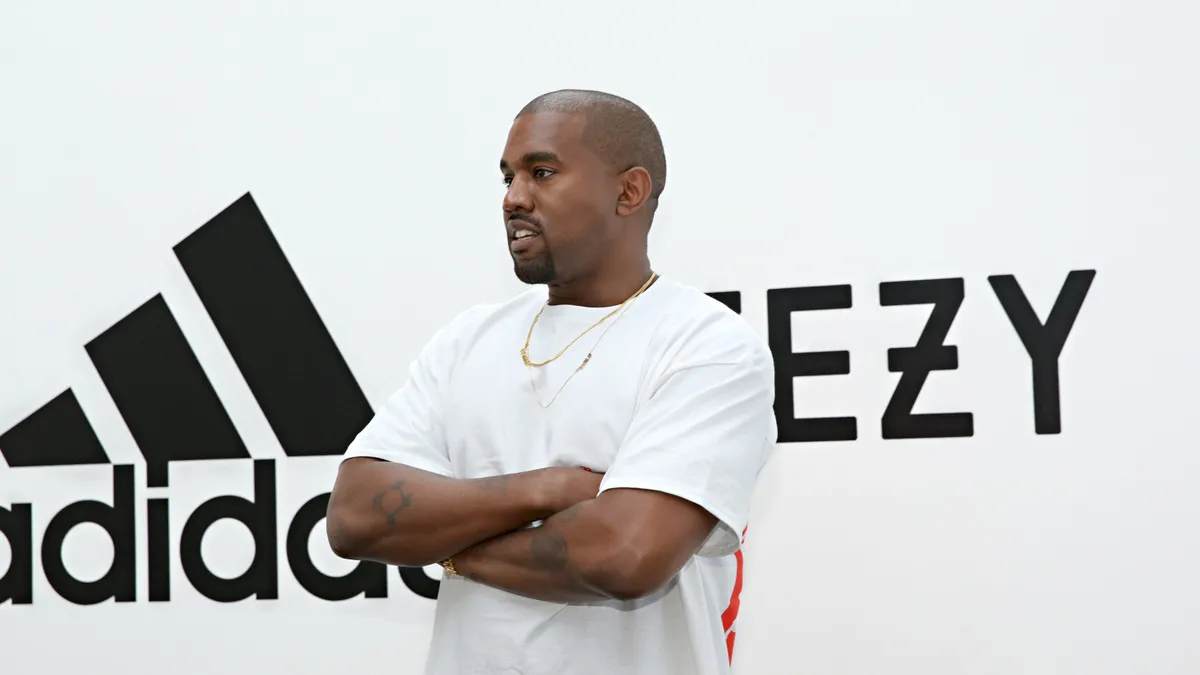Dive Brief
- Adidas did not mislead investors or commit securities fraud related to its business relationship with the rapper and fashion designer Kanye West, who lost multiple commercial arrangements after making a series of antisemitic and racist comments on social media in late 2022, a federal judge ruled.
- Adidas ended its business relationship for shoes designed by West, also known as Ye, in October 2022, saying in a statement that the German company “does not tolerate antisemitism and any other sort of hate speech.”
- Ye “engaged in erratic, inappropriate and antisemitic behavior between 2013 to 2018 and beyond, some of which was widely known to the public,” wrote U.S. District Judge Karin Immergut of Portland, Oregon.
Dive Insight
“This Court does not condone what Ye allegedly did. But the question before this Court is not whether to admonish Ye or hold Adidas morally accountable for Ye's conduct. Rather, this Court is faced with a precise legal question: has Plaintiff sufficiently pleaded facts showing that Adidas misled investors and thereby committed federal securities fraud?”
The answer is no, Immergut wrote in her ruling Friday.
“It was not unlawful for Adidas to refer broadly to “improper behavior” rather than specify any past behavior the Company was aware of,” the judge said. “Section 10(b) does ‘not create an affirmative duty to disclose any and all material information’ and does not prohibit ‘statements that are incomplete.’”
HRSA-ILA Funds sued in April 2023 and named as defendants Adidas and its former chief executive, Kasper Rørsted, and Harm Ohlmeyer, the current chief financial officer.
Plaintiff attorneys with Rosen Law Firm did not immediately respond to a message Monday from Legal Dive seeking comment on the ruling.
Adidas has since been selling off portions of its Yeezy shoe merchandise through periodic releases with donations to “selected organizations to combat discrimination and hate, including racism and antisemitism.”
Adidas and Ye began their commercial partnership in 2013.
The plaintiffs claimed Adidas had misled investors in three categories: Its fiscal year 2018-2021 risk disclosure comments in its annual statements; its diversity, equity and inclusion statements; and in the European Union’s Non-Financial Reporting Directive and the independent Global Reporting Initiative’s sustainability framework.
The investment fund did not demonstrate that Adidas had made material false statements or omitted information for investors about Ye’s public conduct and any financial risk he could pose to the company.
The Yeezy shoe line proved popular among consumers, and the business partnership was profitable for Adidas, which suffered declines in its stock when it severed ties with Ye and in early 2023 when it warned of a potential company loss if it couldn’t sell its remaining Yeezy inventory.
The plaintiffs alleged Adidas executives knew about Ye’s behavior due to antisemitic and other harassing comments he made to Adidas employees, and discussed in 2018 whether to end the company’s relationship with him.
“This Court would be remiss not to note the very public nature of Ye's behavior before Fall 2022,” Immergut wrote.
Immergut dismissed the complaint without prejudice, allowing the plaintiff to file an amended suit within 30 days if it chooses.
Editor’s note: Updates with further information from the judge’s ruling.











